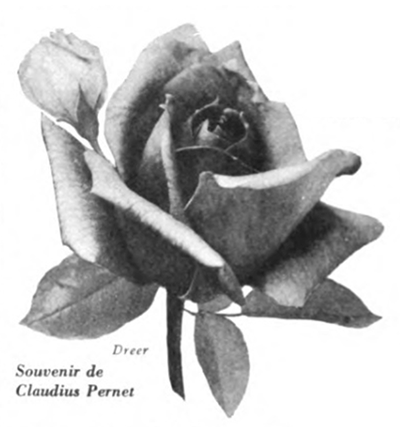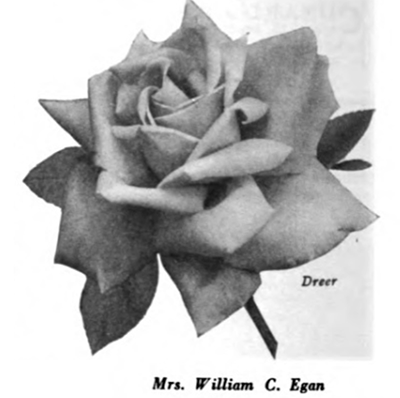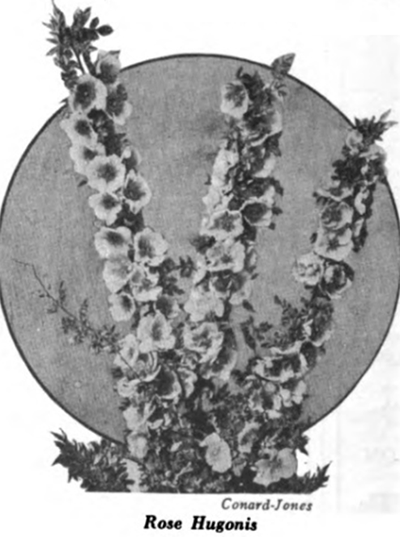Three new roses for the season.
"Three new roses for the season." Arts & Decoration 16, no. 5
(March 1922): 404.
[https://library-projects.providence.edu/rosarium/view?docId=tei/rg0031.xml]

Each year with the arrival of the Flower Show there is a certain amount of interest in the new varieties which the producers have brought out during the past year. The Rose Class is always of particular interest, and one in which we look for several new blooms each year.
We have chosen three to illustrate here in order that you may become familiar with their merits. The first, Souvenir de Claudius Pernet, a new hybrid tea from France, has about it an air of sentiment, for it has been named in memory of the son of the producer, who gave his life for France in the World War. Besides this touch of interest it is a very vigorous grower, has a beautiful brilliant green foliage, few thorns, and carries its long pointed, beautiful buds at ends of long, stiff stems. The flower is very large and well formed, sunflower yellow in color, deepening at the center. The flower lasts well even in the warm weather.
The second hybrid tea is of American production and has been named in honor of Mrs. William C. Egan, a great lover of horticulture, and well known to all readers of garden literature. This handsome bloom is in two tones of pink, the reverse of the petals are a soft pleasing light shade, while the interior is a deep flesh color lined at the base with gold. These blooms are also at the ends of long, stiff stems, and are produced in abundance. They also last long and well.
The third rose, Rose Hugonis, is the harbinger of spring, as it is the first rose to bloom early in the season. It is a spectacular show, each branch of last season's wood is literally covered on both sides with single dainty yellow flowers, resembling hollyhock blooms. The branches are long and arching, and make wonderful indoor decorations when early spring flowers are scarce. This unique rose is also very fine as a shrub in the border. It grows to six feet, and when not in flower it has an interesting acacia-like foliage, with the new shoots showing dark red. This rose is free from disease and blight and should prove a valuable addition to our list of shrubs.
Another group of roses which are being featured this season is the hardy everblooming hybrid tea roses, Miss Lolita Armour, which is described as a deep coral-red with coppery-red suffusion; Mrs. S. K. Rindge, a clear rich chrome yellow suffused with salmon pink; William F. Dreer, a beautiful rose of the same parentage as Los Angeles, and in color is a soft silvery shell pink, based with gold; and Rose Marie, which is pleasing with its clear rose-pink and ideal long buds.
All of this group are of American origin and have been thoroughly tested, and all have the highest recommendation of rose growers and producers. They are both vigorous and healthy.



